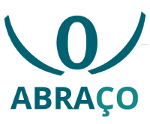
A NeuroMat network to empower persons with Parkinson's disease in shaping therapeutic strategies
Oct 04, 2016
FAPESP’s Research, Innovation and Dissemination Center for Neuromathematics (RIDC NeuroMat) has launched in September a network to promote the collaboration of patients, families and professionals health to face clinical and research challenges associated with Parkinson’s disease. This initiative is called Amparo in Portuguese and is coordinated by the NeuroMat investigator Maria Elisa Pimentel Piemonte, a physical therapist and professor at the University of Sao Paulo. She is the founder and a collaborator of the service of physiotherapy of the Brazilian Parkinson Association and the chair of the Allied Health Professionals and of the pan-american chapter of the do braço pan-americano da Movement Disorder Society of the Movement Disorder Society.
This network is mostly a joint effort of NeuroMat's technology-transfer and scientific-dissemination teams, led respectively by professors Antonio Carlos Roque da Silva Filho (USP) and Fernando da Paixão (UNICAMP). The initiative is embedded in the network that civil associations that focus on caring for persons with Parkinson's disease foster. These associations and in general anyone who is interested in taking of this network are directly involved in setting up the agenda and contribute to the functioning of Amparo. A call for participation should be soon released as a text and video invitation. A reference is the official hot site that works as a formal go-to point for following scheduled activities. Registration to the network will be made available through this site.
A first lecture, that will officially launch the initiative, is scheduled October 24, with Michelle Hyczy de Siqueira Tosin. She is a nurse from the International Center of Neurorehabilitation and Neuroscience SARAH, in Rio de Janeiro. The talk will be streamed online and should start at 4:00PM.
Amparo expects to build a shared set of evidence-based practices collaboratively built to establish a common understanding of challenges persons with Parkinson’s disease face in Brazil and to have an impact on clinical policies and research projects associated to this disease. According to Piemonte, the organizational ambition is to establish a “horizontal network,” in which everyone who is interested may provide inputs.
Several studies indicate that Parkinson's disease affects 1% of all persons who are 60 years old and older, being considered the second most prevalent geriatric neurodegenerative disease after Alzheimer's disease. An effective strategy to provide clinical support to patients is not to limit it to a a pharmacological treatment, but involving a vast team of healthcare professionals from diverse backgrounds. Evidences support the claim that the active role of caregivers, including relatives, are a significant predictor of the quality of life of patients.
According to Piemonte, “The creation of this network rests upon involving patients and relatives as fundamental partners in the challenge of improving services that target this disease, promoting a broad discussion on clinical strategies and the role of associations to support families.” A medium term goal of Amparo is to have an impact on the development of a specific line of care for Parkinson's disease in Brazil. This should be a participatory and integrated process, said Piemonte.
This piece is part of NeuroMat's Newsletter #32. Read more here
Share on Twitter Share on Facebook| NeuroCineMat |
|---|
|
Featuring this week: |
| Newsletter |
|---|
|
Stay informed on our latest news! |
| Follow Us on Facebook |
|---|




